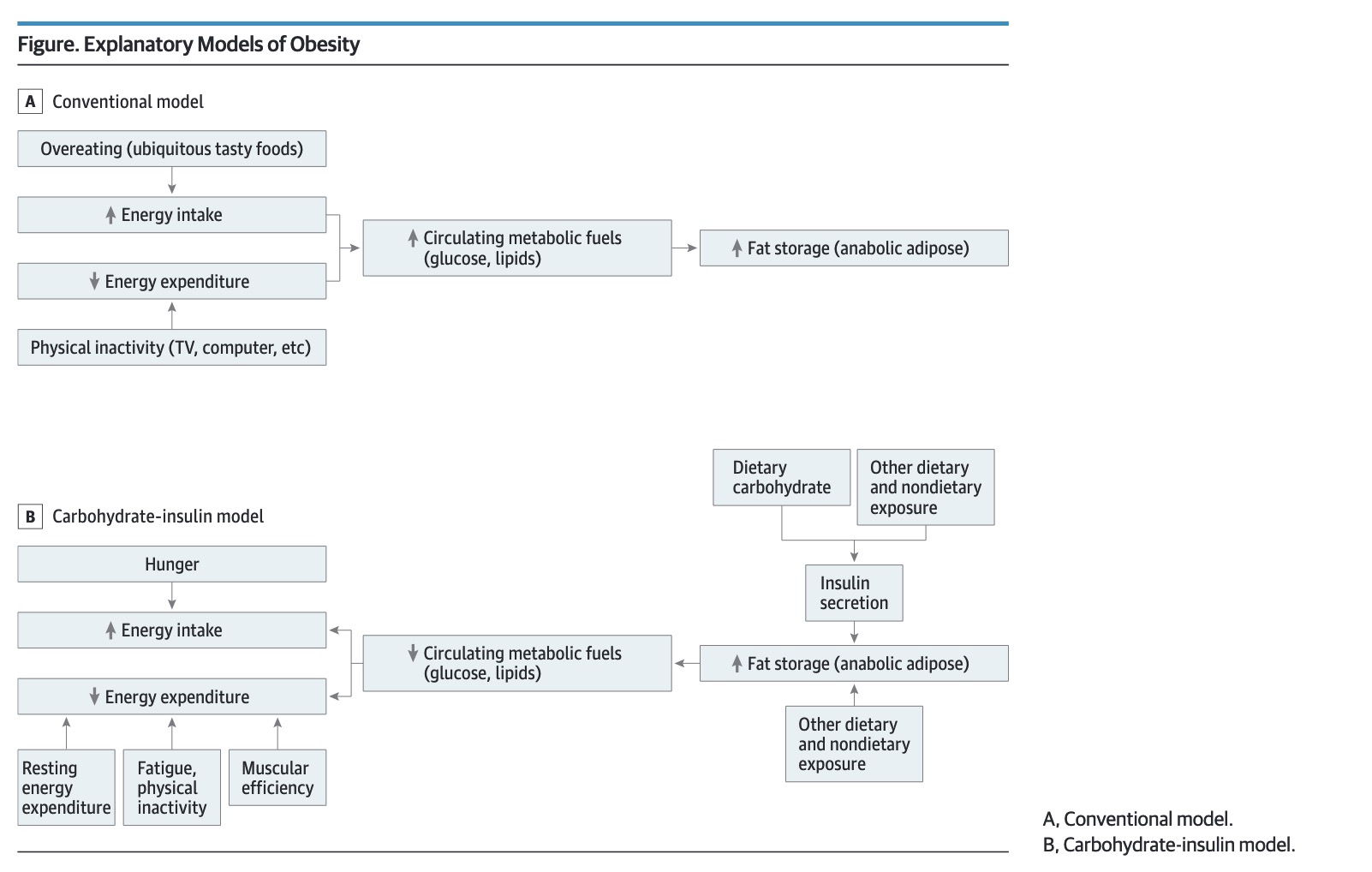Notes:
rates of obesity remain intractably high despite intensive focus on reducing calorie intake (eat less) and increasing calorie expenditure (move more), with major implications to well-being, life-expectancy, and health care costs.
this model considers fat cells as central to the etiology of obesity, not passive storage sites of calorie excess.
Insulin decreases the circulating concentration of all major metabolic fuels by stimulating glucose uptake into tissues, suppressing release of fatty acids from adipose tissue, inhibiting production of ketones in the liver, and promoting fat and glycogen deposition.
Insulin is a super hormone, when its elevated the body stops feeding itself and stores everything.
inadequate insulin treatment of type 1 diabetes and drugs that inhibit insulin secretion cause weight loss.
Dietary fat has little direct effect on insulin, providing a theoretical basis for the efficacy of high-fat diets.
the carbohydrate-insulin model of obesity (CIM) proposes that a high-carbohydrate diet—including large amounts of refined starchy foods and sugar, as commonly consumed in the lowfat diet era—produces postprandial hyperinsulinemia, promotes deposition of calories in fat cells instead of oxidation in lean tissues, and thereby predisposes to weight gain through increased hunger, slowing metabolic rate, or both
Carbs/Sugars drive weight gain and hunger, its a vicious cycle.
calorie restriction can be viewed as symptomatic treatment, destined to fail for most people in the modern food environment. Low-calorie, low-fat diets may actually exacerbate the underlying metabolic problem by further restricting energy available in the blood—triggering the starvation response comprised of rising hunger, falling metabolic rate, and elevated stress hormone levels
People eating a high carb diet are always hungry because all of their internal stored energy (fat) is unavailable to them. They are always starving even though they have plenty of fat.
Even when calorie-restricted to prevent excessive weight gain, insulin-treated animals still developed excessive body fat consistent with a prediction of the CIM regarding fuel partitioning
CICO / Eat Less Move More - Would say that the food doesnt matter, but in animals adding insulin without changing the diet causes weight gain! This disproves the simplistic CICO advice of weight loss.
calorie restriction to prevent excessive weight gain in animals on a high-GI diet did not prevent excessive adiposity or the associated cardiometabolic risk factors
If the insulin is elevated (carbs/sugar in the diet) even calorie restriction does not prevent obesity in animals.
